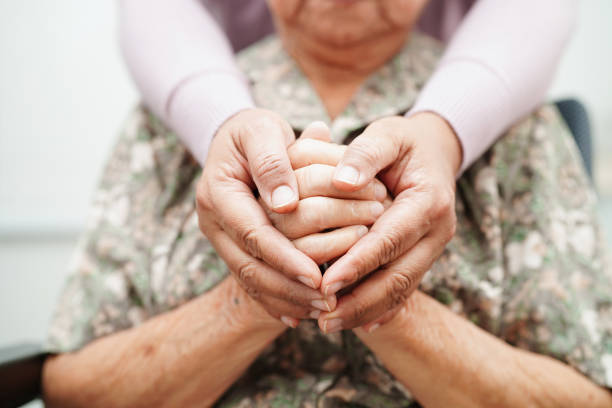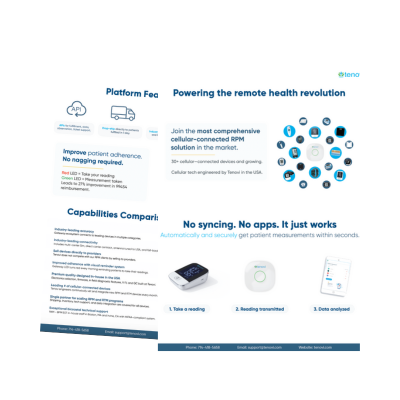With over 53 million Americans serving as unpaid caregivers for loved ones, caregiver stress, loneliness, and burden continue to increase. Remote patient monitoring (RPM) is one caregiver solution that enhances care and alleviates some caregiver tasks. This article explains how RPM addresses family caregivers’ most pressing challenges across care settings.
Innovative Caregiver Solutions — Remote Patient Monitoring
Remote patient monitoring uses remote monitoring devices to record and wirelessly transmit patient health data like blood pressure, pulse, and other biometrics to healthcare providers. This allows physicians to monitor patient’s vital signs regularly without caregivers administering tests or writing down measurements. With nearly 24% of Americans acting as caregivers, RPM facilitates efficient patient oversight between doctor visits. Of course, one caregiver solution won’t take the burden entirely off of caregivers, but it does help build efficiencies and balance.
RPM and Chronic Care Management
In the past decade, the leading causes of death globally shifted from acute and infectious diseases to chronic and degenerative diseases. Meanwhile, America’s aging population has increased and, in 2023, was expected to rise from 336 million people to 373 million in 2053. Chronic care management involves consistent treatment of long-term conditions such as Alzheimer’s, arthritis, asthma, diabetes, heart disease, and mental health disorders.
With six in ten Americans suffering from at least one chronic illness, access to care management is crucial. While the demand for caregiving rises, the affordability of care facilities continues to decrease. Recognizing the need for effective and affordable care, the Centers for Medicare & Medicaid Services developed billing codes to reimburse providers for preventative care services for chronic diseases.
This change also helps to reduce the budhen of frequent clinic visits for patients and their caregivers. Additionally, Medicare covers remote patient monitoring for seniors with at least one chronic health condition. Remote patient monitoring is a beneficial patient and caregiver solution in additional ways regarding cost. It eliminates travel-related expenses while reducing hospital and doctor visit costs.
RPM and Geriatric Care
Caregivers serve many roles: medication manager, transportation coordinator, meal supervisor, and emotional support provider. Getting their loved one to medical appointments takes much planning and patience. Older adults often require emergency care and doctor appointments.
Geriatric patients are more likely to have chronic conditions such as diabetes and heart and kidney disease. This often results in the need for hospital admission. This may require a caregiver to take time off from their job. However, remote monitoring can help detect health concerns before they progress.
Research suggests that RPM is one caregiver solution for improving caregiver experiences. For instance, one systematic review revealed that remote health interventions improve caregivers’ psychological health and quality of life.
RPM and Pediatric Care
Pediatric remote patient monitoring programs were rare before the COVID-19 pandemic. Today, pediatric RPM programs are more prevalent as a caregiver solution. Research shows that caregiver champions have added to the progress made in improving remote patient monitoring programs. RPM is shown to provide reassurance for parent caregivers, positive communication, and an improved feedback loop that reinforces engagement.
A Caregiver Solution for Improved Care and Reassurance
Consistent data allows clinicians to address specific and effective interventions for the patient. With access to daily patient health data, doctors can understand symptoms better and intervene specifically when needed. Additionally, automated RPM alerts inform providers immediately of abnormal patient readings.
This caregiver solution allows prompt treatment adjustments that alleviate patient and caregiver distress. Studies show RPM reduces caregiver burden and improves stress and family function during the first 30 days at home in heart failure patients post-hospital care.
In the face of rising demand for caregiving, RPM offers an innovative caregiver solution for enhanced patient care and reduced burden through regular health data tracking and evaluation. Equipping caregivers with RPM technology empowers them to provide exceptional care while maintaining wellness.
Tenovi RPM Solutions
Tenovi can help you find the best remote patient monitoring solution — whether your healthcare partners want to adopt RPM to increase patient engagement, create a more efficient workflow, or increase revenue. Book a free demo today.


